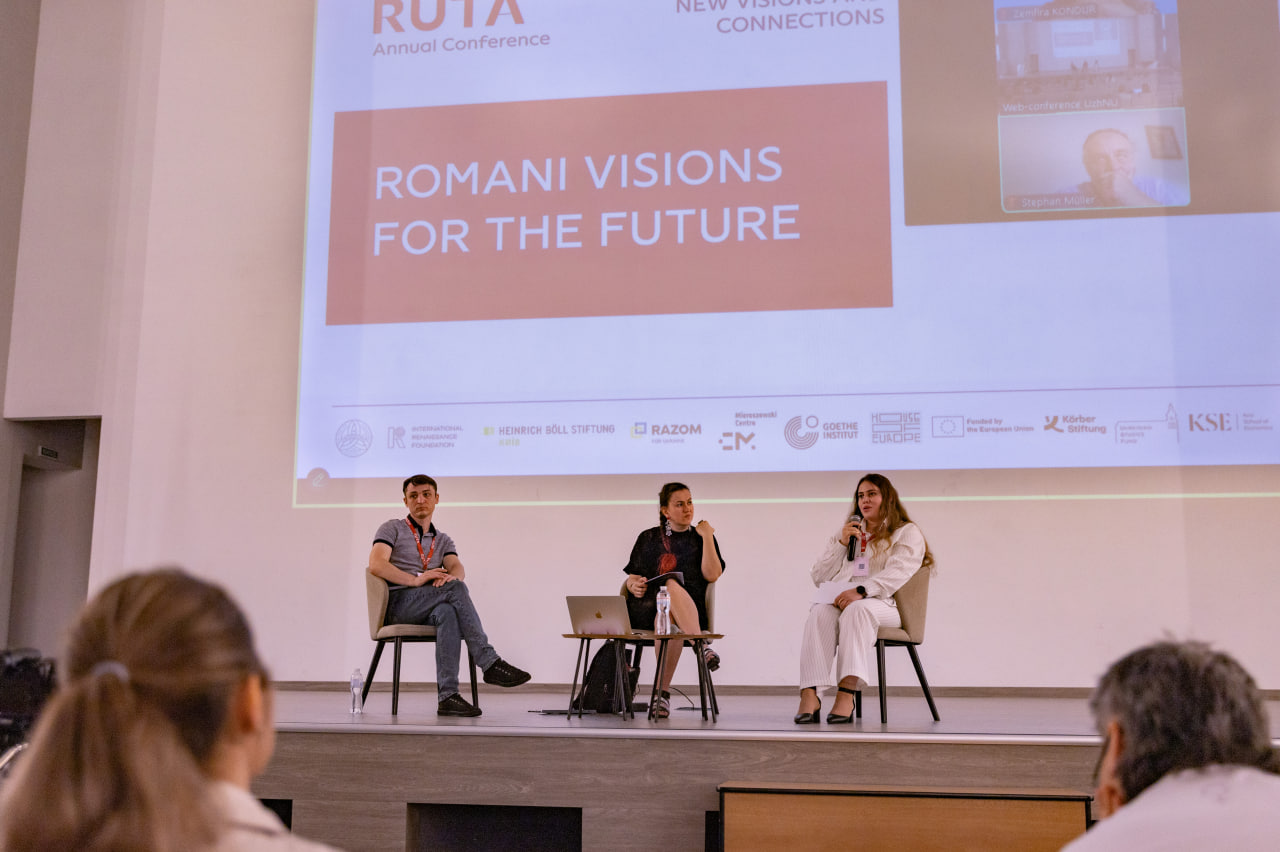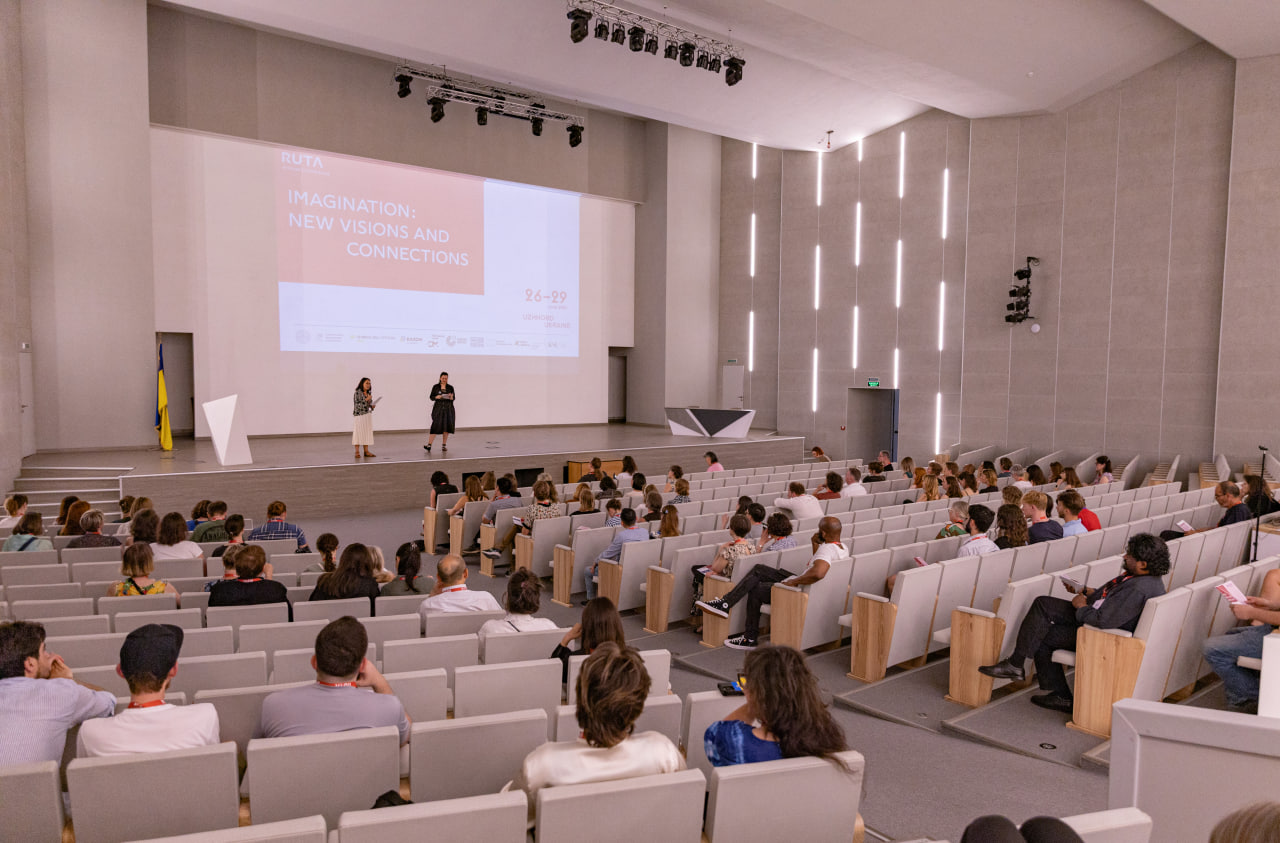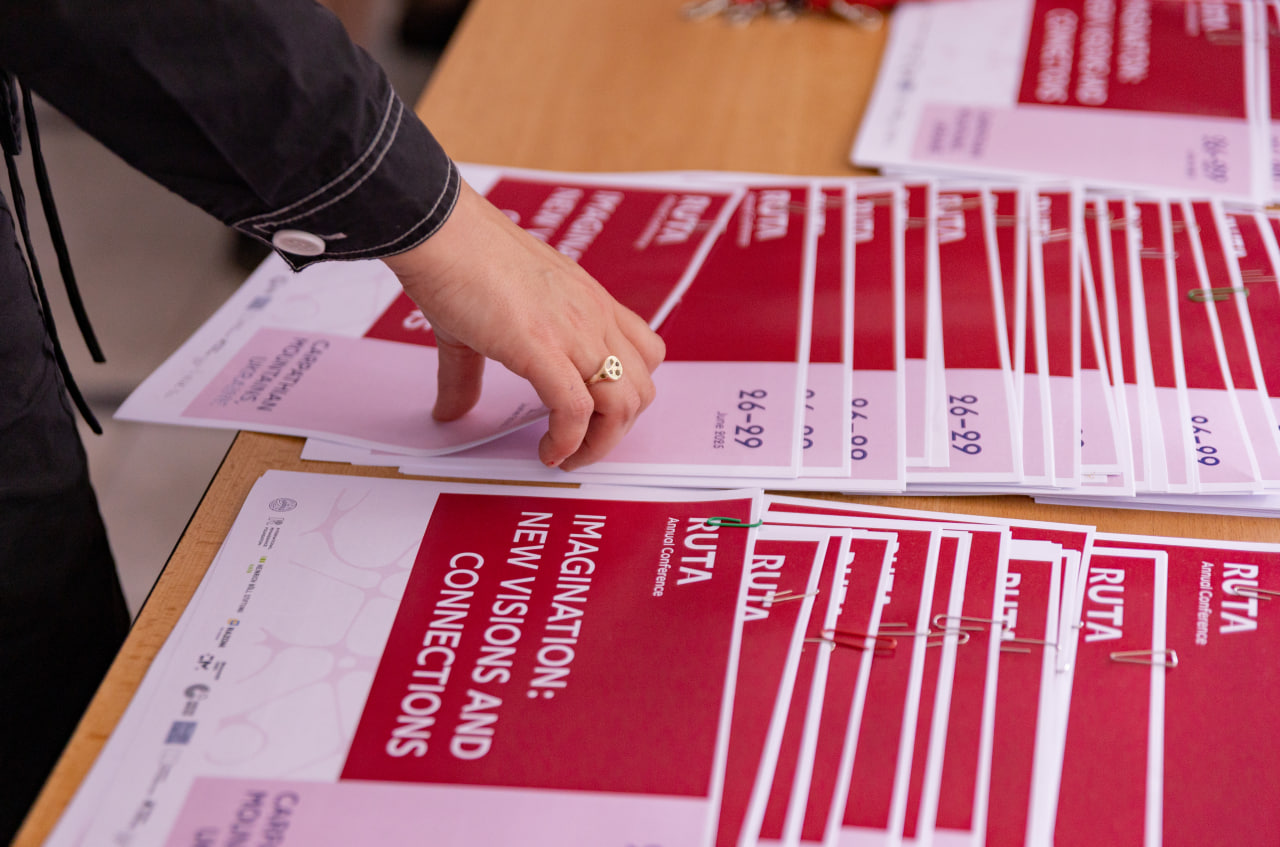On 26–29 June, the second annual conference of the RUTA Association entitled ‘Imagination: New Visions and Connections’ took place in Uzhhorod. This year, it brought together over 160 participants from twenty-six countries who came to Uzhhorod to share their research, artistic practices, and experiences in the fields of journalism and activism.
The participants represented various regions, including countries where wars are ongoing or there is political instability: Syria, Palestine, Ukraine, Nigeria, Armenia, and others. The programme focused on imagination — not as an abstraction, but as a political force. Referring to the ideas of intersectional feminist Bell Hooks, participants discussed how colonisation affects not only our thinking, but also our ability to imagine the future. And as soon as we regain our imagination, we regain the power to change the future.
A common thread running through the conference was the rethinking of ways of creating knowledge about Eastern Europe, the Caucasus, and Central Asia. We sought a language that would not reproduce imperial paradigms, but would tell about the region from within — through the continuity of experience, culture, art, and academic thought.
The conference brought together participants from Ukraine, Armenia, Syria, Austria, Canada, the Czech Republic, Estonia, Finland, France, Georgia, Germany, Hungary, Ireland, Italy, Kazakhstan, Lithuania, Mexico, Moldova, the Netherlands, Poland, Spain, Switzerland, the United Kingdom, and the United States. Over the course of four days, more than 40 panel discussions and round tables took place, as well as nine artistic events.
The panels presented were devoted to Roma visions of the future, analysis of Russian society and opposition in wartime, and documentation of war crimes with a particular focus on Russian crimes in the Central African Republic and Mali, the Republic of Ichkeria, Syria and Ukraine. Recordings of these discussions will be published on the RUTA YouTube channel and made available to a wide audience.

They also discussed environmental justice in post-Soviet regions, the experience of refugees and human trafficking in the context of the Russian invasion, left-wing activism in Armenia, reproductive rights in Poland, Polish-Ukrainian reconciliation, feminist narratives about disability and care, the postcolonial perspective of Crimean studies, the political economy of movements, and solidarity with liberated territories and silenced histories.
Artistic performances and presentations were also an important part of the conference. For the second year in a row, artist Maya Haida curated the artistic programme. This year’s artistic programme combined physical practices, documentary screenings, and performative readings. Cooking with Mama, a presentation of zines and joint practices, singing, performative practices on the Uzh River, somatic rituals of experiencing loss and grief, collective drawing of the trident, viewing of Polina Piddubna’s documentary animation My Grandmother is a Parachutist.

For many participants, RUTA became an example of how to build a new community that is not afraid to raise difficult issues and seek unconventional ways to support each other. There were frequent calls for solidarity with the peoples of Syria and Palestine, as well as ideas for establishing interregional dialogues that go beyond the imperial centres of influence.
The event was made possible with the support of: Uzhhorod National University, the International Renaissance Foundation, the Heinrich Böll Foundation in Ukraine, Together for Ukraine, the Mieroshevsky Centre, the Goethe Institute in Ukraine, the House of Europe, the Kerber Foundation, the Foundation of Ukrainian Studies, and the Kyiv School of Economics.

The Association RUTA (Association RUTA for Central, South-Eastern, Eastern European, Baltic, Caucasus, Central and Northern Asian Studies in Global Conversation) is an international academic community that brings together researchers, artists and activists working to rethink regional studies. It emerged in response to Russia’s full-scale invasion of Ukraine in 2022 and is based on networks of solidarity and shared knowledge. RUTA’s goal is to transform regions from objects of study into active participants in global academic dialogue, focusing on decolonial approaches, social justice, and local epistemologies.
Source: Zagolovok

